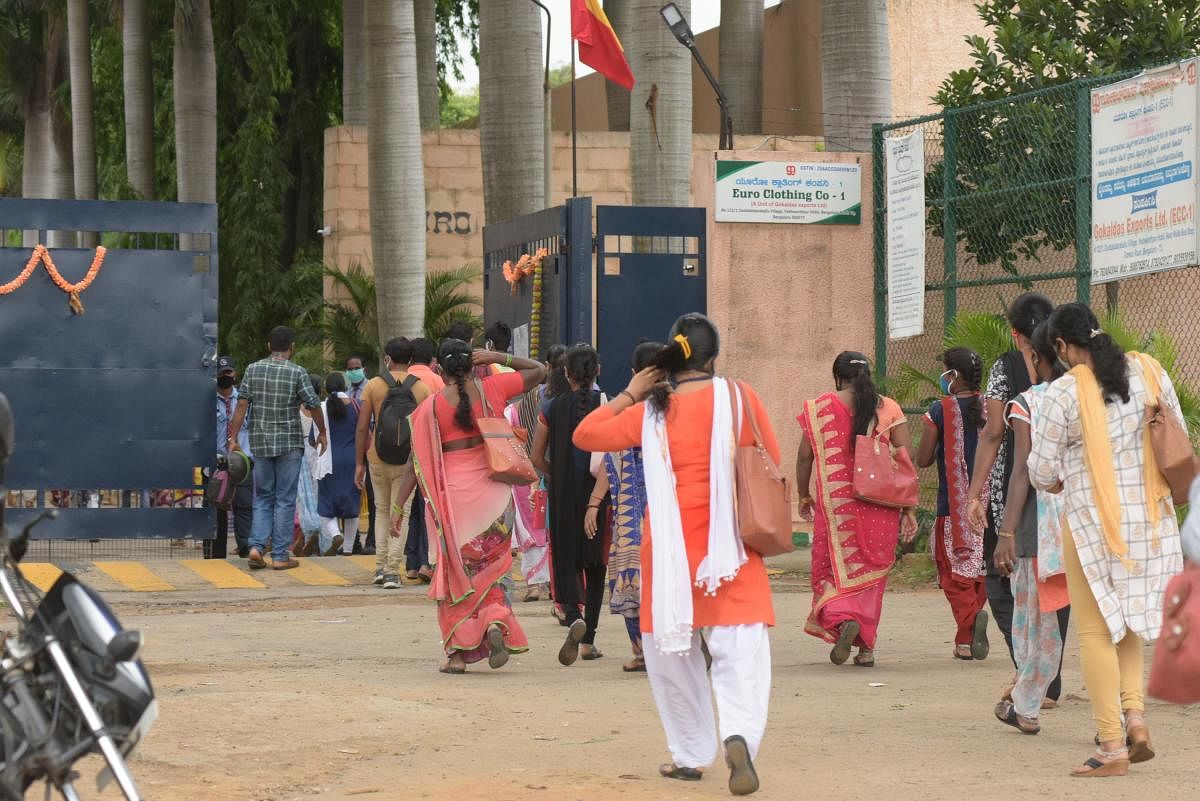
A government scheme to provide free monthly BMTC bus passes for women working in garment factories has run into a roadblock.
Only 537 women workers have been able to benefit from the scheme since it was launched in January. More than 3.5 lakh workers are employed in over 780 garment factories in Bengaluru, according to Garment and Textile Workers Union (GATWU). Over 80% of them, or 2.8 lakh, are women.
The scheme is called Vanitha Sangathi, and calls for the state government and garment factories to contribute 40% each towards the passes, and the BMTC to cover 20%. A monthly pass usually comes for Rs 1,050.
Under the scheme, factory owners have to send the list of women seeking the bus passes to the Karnataka Labour Welfare Board. But most are refusing to oblige, citing the financial implications of the move on the garments industry.
Govt v/s industry
When Metrolife contacted BMTC and the Karnataka Labour Welfare Board, they acknowledged that factory owners are not sending workers’ names pro-actively.
Anurag Singhla, president, South India Garment Manufacturers and Wholesalers Association, says garment factory owners think it is unfair of the government to collect 40% of the cost from them. “These employers are already providing benefits like ESI, PF, and creches,” he argues.
The Clothing Manufacturers Association Of India (CMAI) says it has communicated its inability to fund the scheme. The industry operates with thin margins, a spokesperson wrote to Metrolife over email.
The Karnataka government should extend this scheme to all women without linking it to a particular industry, the CMAI spokesperson suggested.
Commuting woes
Women workers such as Dhanalakshmi are caught in this crossfire between the factory owners and the government. She spends Rs 20 each day on bus fare to her workplace and back. She says, “Our wages are already low and now the price of tomatoes, coriander, oil — everything has increased. If I can save even Rs 20 on travel, I will be happy.” The average monthly salary of a garment worker is Rs 9,500.
According to Prathibha R, president of GATWU, less than 5% of garment factory workers commute by BMTC buses. Many workers live within walking distance of the factories. Some take private vehicles as the bus stops are not conveniently located. “Since many women walk, or take multiple buses, or walk and take a bus, they often get late to their workplace,” Prathibha says.
Some factories arrange transport for workers but they number less than 5%, says GATWU advisor K R Jayaram. These factories deduct Rs 500-Rs 1,500 from the monthly salaries towards that.
“Before the Covid crisis, the fee was nominal. Then they raised it by Rs 50. When they increased it by Rs 150, I stopped taking the factory transport and walked instead. I quit eventually,” says Manjula, an ex-worker.
Usha lives in fear. “After the Covid outbreak, I am paying Rs 380 monthly on the company transport. If they increase it any more, I will have no option but to walk a certain distance,” she says.
The Garment Labour Union (GLU) tried to negotiate with the mid-level management of some factories in the Peenya Industrial area to revert to the pre-pandemic rate, which was mostly Rs 250-300. “Only one agreed,” says its general secretary Saroja K.
UNION: ‘Govt should collect names'
Workers’ representative from GATWU, Prathibha R, blames the poor response on the structure of the scheme. “No garment employer wants to take the responsibility (of collecting names) and then pay for workers’ transport,” she says. A “slightly better” approach would be for the government to collect the names,
she says. When GLU took up the matter with some factories, they said they had either not received the notice or were in the planning stage, says Saroja K.
Free bus passes issued
Jan: 14
Feb: 38
Mar: 129
Apr: 167
May: 189
Source: BMTC
*Average monthly income of a garment worker: Rs 9,500
*How much a monthly bus pass usually costs: Rs 1,050